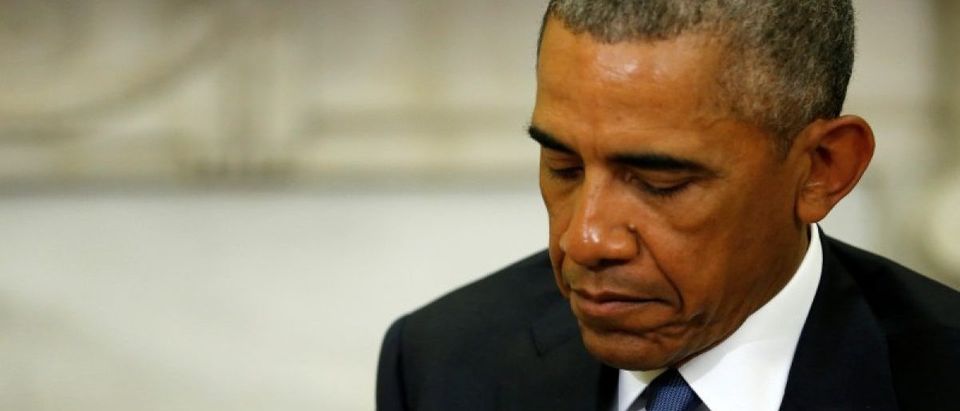A soon-to-be-published paper challenges the Obama administration’s so-called “social cost of carbon” estimate, which puts a monetary value on the supposed future damages from global warming.
But the new study’s authors not only say the administration’s “social cost of carbon” (SCC) is overblown, they also argue it might actually be negative based on observed temperature increases, not just climate models. That means there’s actually benefits to emitting carbon dioxide.
“The resulting Social Cost of Carbon (SCC) estimates are much smaller than those from models based on simulated parameters,” wrote Ross McKitrick, an economist at the University of Guelph, along with David Kreutzer and Kevin Dayaratna, both economists at the conservative Heritage Foundation.
McKitrick’s study applied a recent study of climate sensitivity to two climate models used by federal agencies to estimate the SCC. In one model, the “SCC falls by 30-50% depending on the discount rate,” they noted, while in a second model “average SCC falls by over 80%.”
Most shockingly, when McKitrick and his coauthors analyzed the government’s so-called FUND model, they found it “yields a substantial (about 40 percent or more) probability of a negative SCC through the first half of the 21st century.”
The new study calls into question the science used by the Obama administration to come up with its SCC estimate, which is used by federal agencies to justify huge monetary benefits from reducing CO2 through regulations.
In 2013, the administration raised the SCC to $35 per metric ton.
That increased measurement of the supposed damages from emitting CO2 into the atmosphere was used to help justify Environmental Protection Agency regulations on emissions from power plants. EPA says its so-called Clean Power Plan would yield “climate and health benefits worth an estimated $55 billion to $93 billion per year in 2030.”
McKitrick and his coauthors argue the SCC doesn’t take into account empirically-based analyses of how sensitive the climate is to CO2. Their study incorporated a 2015 study by climate scientists Nic Lewis and Judith Curry, which found doubling atmospheric CO2 levels would only yield 1.64 degrees Celsius of warming — less than what most climate models assume.
But McKitrick is far from the first to criticize the Obama administration’s use of the SCC in regulations. Robert Murphy, an economist with the free market Institute for Energy Research, argued in 2013 there was “little ‘science’ behind the whopping numbers.”
“The ‘social cost of carbon’ is a very malleable concept that can be inflated or deflated by turning certain wheels,” Murphy said.
SCC estimates vary widely depending on the discount rate that is used in the calculation. The lower the discount rate, the higher the social cost of carbon — the government uses a 2.5 percent, 3 percent, and 5 percent discount rate in its estimates.
“Strictly speaking, the ‘social cost of carbon’ is directly relevant for government policy only in the context of a worldwide uniform enforcement of the penalty on emissions (such as a carbon tax),” Murphy said. “But if, say, the estimated theoretical social cost of carbon is $20/ton, and the US unilaterally imposes a $20/ton carbon tax, then that is actually inefficient, because much of the emission activities will simply migrate to other jurisdictions.”
Follow Michael on Facebook and Twitter
Content created by The Daily Caller News Foundation is available without charge to any eligible news publisher that can provide a large audience. For licensing opportunities of our original content, please contact licensing@dailycallernewsfoundation.org.
All content created by the Daily Caller News Foundation, an independent and nonpartisan newswire service, is available without charge to any legitimate news publisher that can provide a large audience. All republished articles must include our logo, our reporter’s byline and their DCNF affiliation. For any questions about our guidelines or partnering with us, please contact licensing@dailycallernewsfoundation.org.


